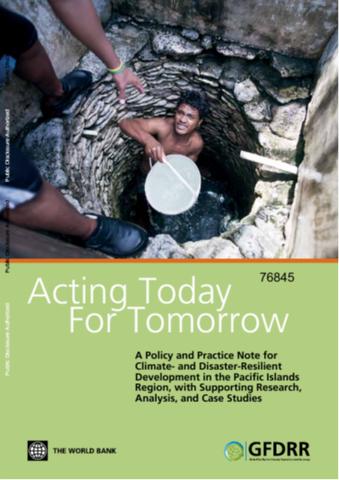Resource information
Pacific island countries continue to be among the most vulnerable in the world: they combine high exposure to frequent and damaging natural hazards with low capacity to manage the resulting risks. Their vulnerability is exacerbated by poorly planned socioeconomic development, which has increased exposure and disaster losses, and by climate change, which has increased the magnitude of cyclones, droughts, and flooding. Currently, inefficient management of risks negates development gains and incurs large costs for national and local governments. Progress in reducing vulnerability has been retarded in part because of fundamental problems with coordination and cooperation among relevant actors at all levels. 'acting today for tomorrow' provides case studies, data, and analysis from the Pacific region to make a case for climate-and disaster-resilient development as being the most appropriate way to address the above challenges. It outlines what the consequences are of not acting today to reduce risk, what important lessons have emerged from the last decade, and what must be done to move toward resilient development in Pacific island countries. The document is intended for an audience of practitioners and policymakers at all levels across all relevant sectors. Its analysis and recommendations are meant to inform disaster risk reduction (DRR) and climate change adaptation (CCA) planning across a range of institutions. Over the last decade, some important lessons have emerged about what works, and what does not work, to reduce vulnerability. It is clear now that project-based DRR and CCA initiatives with relatively short time frames encourage fragmented efforts, inhibit carryover across initiatives, and ultimately do little to reduce underlying vulnerability in a lasting way. To achieve robust and effective political authority, leadership, and accountability for more resilient development, governments should anchor coordination of DRR and CCA in a high level central ministry/body both at national and regional levels and ensure that leaders are knowledgeable about disaster and climate risk management.


